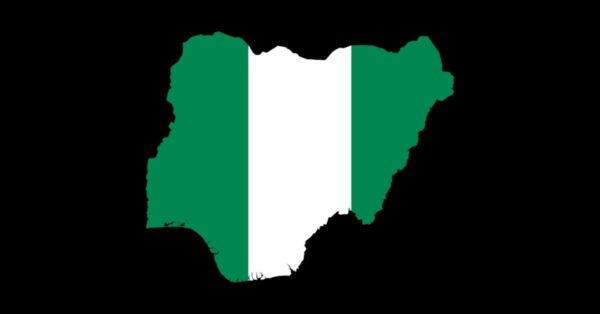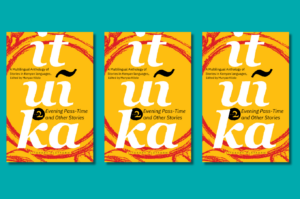
1.
At the Ake Arts and Books Festival in Lagos last October, the novelist Helon Habila said something about identifying as a “Nigerian writer.” “It is easier to identify as, say, an Igbo writer than a Nigerian writer,” he said. “This nation is a colonial construct; it was arbitrarily created; so, calling yourself a ‘Nigerian writer’ is endorsing all of that. We don’t yet know what a ‘Nigerian writer’ is. We will get to know that as we have these discussions.” He made this statement during a panel on Chinua Achebe’s Things Fall Apart, featuring him and fellow novelists Chika Unigwe and Nnamdi Ehirim, moderated by Wale Lawal, founder of The Republic. On the panel, too, Unigwe said, “People often say we complain a lot about colonialism even when the colonial masters have been gone for long. What they don’t know is about the effect the legacies left by colonialism is still having on us today.” Sitting there at the Alliance Francaise, listening to them speak, I realized that, but for a bit of insincerity and lack of action, we are perhaps not very far from discovering the truth of what has for so long been keeping back Black people living in Africa.
2.
In many ways, the words of Habila and Unigwe cast light on a certain aspect of the Nigerian condition, which seems to have been caged in the shadows. In recent times, I have rarely come across many serious discussions on what or who a “Nigerian writer” really is, or the political viability of such a term. In this age of globalization and the outflux of African literary personnel to the West, tags like Nnedi Okorafor’s “Naijamerican writer” or “British-Nigerian writer” or “Canadian-born Nigerian writer” have been on the increase, with “Nigerian writer” itself on the decline. Even if, as an artist of Black African origin, you were not born in America or Britain, a few years down the line in your artistic pursuit, you would find that a more promising endeavour lies outside of this place you call your country, due to the blatant lack of resources to support and project your talent to the stage it deserves.
The current state of things in Nigeria is arguably worse than it has ever been, economically and generally speaking. Literary culture is not left out; the many legacies which brought African literature to us and the world at large has not survived till this very day. My father, who was an ardent reader of the African Writers Series, the Longman Series, and the Pacesetters Series during the ’80s and ’90s, is a little taken aback when I say I am a writer, because as far as he was concerned in his own little part of the world, nobody is writing again, and fewer and fewer people are interested in literature. And it is understandable. I have often asked myself what prominence the writer in Nigeria today holds for the average person on the streets who isn’t involved in the arts? It is almost as if a wall has been successfully erected between our artists and what is supposed to be their most intimate audience. As a result, the influence bestowed by the society upon artists is going into extinction in Nigeria.
Similarly, the term “Nigerian writer” also seems to exist in a blur. The problem is that the issues of relevance leading to this regression aren’t being given enough attention. Why, for example, is racism given all the attention when none is given to ethnocentrism in Nigeria? Why is the #MeToo movement given a narrow interpretation that does not actively focus on, say, the issue of Nigerian politicians marrying children who ought to be in school? Why is there more alarm every time mass shootings happen in the US but not every time Fulani Herdsmen massacre entire communities? There is an ongoing blatant murder of political activism in literary Nigeria, an attempt to paint it as unnecessary or futile. Writers pursuing such causes look out of place in literary circles. The silence of the literary community extends even when more vocal colleagues are arrested by the government.
3.
There is a certain theory that Nigerian writers of the present generation—those who broke out in the 2000s and 2010s—are less political in their writing than their predecessors. But are Habila, Unigwe, Chimamanda Ngozi Adichie, Chinelo Okparanta and the rest truly less political in their books? The difference, especially with Adichie and Habila, is a shift from politics that primarily affects their home country to another kind of politics, globalized in outlook and Westernized in reality, from which concerns about Nigeria can only proceed as secondary. One could surmise that as the hopelessness of Nigeria became more and more apparent, the generation in question saw no point in fighting.
As younger writers emerge, it is clear how they are following in the footsteps of their predecessors and looking away. But as Nigeria has arguably never been as divided as it currently is under President Muhammadu Buhari’s regime, with questions and skepticism surrounding the continued viability of its structure, this chaos remains one of the challenges facing the next generation of writers—those raised in the country. And how they choose to deal with it will define their place in history. It is time for younger writers to question the complacency of most writers of the older generation.
Unigwe presents the lingering effects of colonialism as a reason to keep talking about it, but what about a discussion on how to totally decolonize? Rarely have Nigerian writers and intellectuals sat down on a large scale to talk about why their country is still under the shadow of the British 60 years after the colonialists left. Instead, this generation took the easy way out.
4.
It is grossly irresponsible to keep blaming everything on the West. If there is anything left of my optimism, it is the belief that we as a people, no matter what has been taken from us, reserve the power to be masters of our collective destiny. The continuous circumnavigation around this topic shows that the 2000s-2010s generation, which has the reach to do so, is guilty of intellectual laziness and dishonesty. A few of them, though, like the late Pius Adesanmi and Ikhide R. Ikheloa, may be unrelenting in the pursuit of the truth. But I think we should be more honest with what our problems are. What is the gain in keeping up complaints and criticizing the leadership of a country that is likely to never get better without interrogating the root causes? Adesanmi once wrote:
I write basically these days for the purposes of archaeology. A thousand years from now, archaeologists would be interested in how some people called Nigerians lived in the 20th and 21st centuries. If they dig and excavate, I am hoping that fragments of my writing survive to point them to the fact that not all of them accepted to live as slaves of the most irresponsible rulers of their era.
Not many Nigerians are accepting of their country’s situation. But not many writers of Adesanmi’s generation can, by their actions and words, be counted among those resisting.
The 2000s-2010s generation of Nigerian writers has failed in so many things. It has failed to figure out a different approach to ask the questions that will solicit a different kind of response, a different way to portray the situation of Nigeria to the world. What is the collective evidence that it has owned its stories? When it still presents colonialism as the major deterrent to our progress, does its stories not still portray us as the hunted, do they not emphasize the hunter?
We must begin to challenge African narratives that sidestep root causes. We must do this by questioning every remnant of the colonial legacy, part of which is the current structure of Nigeria. The West, which offers our writers and intellectuals a safe haven but also provides our politicians safe medical healthcare to treat minor issues such as a slightly injured ear, will not do this for us. The Brits will never come to us and say: “Okay, we have colonized you in the wrong way, and we are sorry for our role in the Civil War. Now, this is the right way to exist among yourselves.” There is no room for that in their national politics. The British will instead continue to feign a blind eye to our degenerating politics while funding our literature. Nigerian intellectuals are kept balanced between the chaos in their homeland and access to an illusion of freedom in the West, from where they can perform intellectual gymnastics for an irredeemable country.
The failure of the generation before my generation of writers is the failure to think outside the box. If there is something I hope for, it is that, in my literary and intellectual pursuits, I might not fall into that box. A crucial starting point is to examine, to really examine, who a “Nigerian writer” is—what “Nigerian” means. It is only when we give this due attention that answers will emerge and we will realize the work to be done.
About the Writer
Michael Chiedoziem Chukwudera is a journalist working for Voice Of The East Media. He enjoys reading and traveling. He is interested in the often-avoided topics among Nigerian and African intelligentsia and hopes to spark conversations around them. His writing has appeared on African Writer, Brittle Paper, Kalahari Review, Praxis, and elsewhere. Follow him on Twitter and medium: @ChukwuderaEdozi.









Harry Olufunwa January 17, 2021 06:14
Well-written piece. It carries out a necessary and painful task: forcing Nigerian writers to focus on Nigerian issues in a specifically Nigerian context, devoid of the hype and jargon of Western-inflected activism. Nigeria is not a subset of Western issues; it is an African nation with characteristically African issues. The essay tells us that we must stop thinking in terms of foreign agendas. How many Nigerian-heritage writers have collectively condemned the ethnic cleansing in, say, Southern Kaduna the way they have repeatedly condemned police brutality in the US? Why does the latter phenomenon seem to be more deserving of attention than local injustices? Perhaps Achebe will say it better: "The knee is nearer than the shin." "Our is ours, but mine is mine."